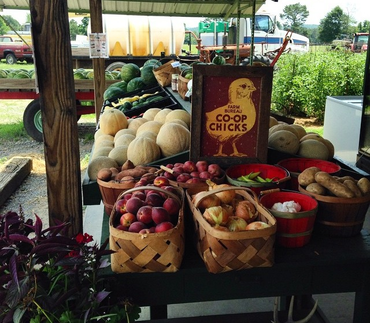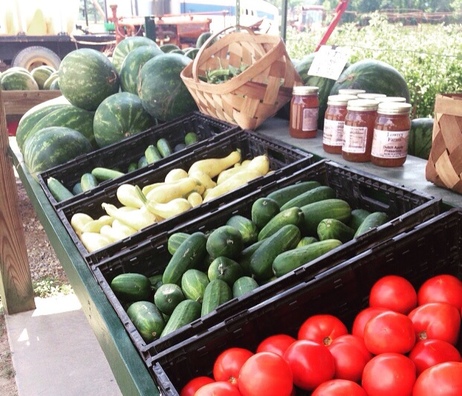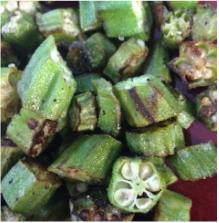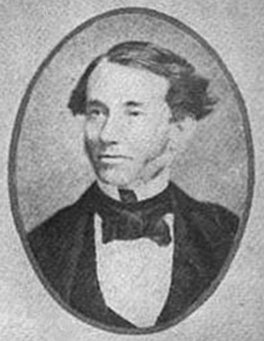|
We're checking in on our old pal, Uriah Meigs for this year's summer fiction. I still believe that this look at alternative history allows us to explore moral and ethical questions and I hope that Uriah's adventures are as thought provoking for the readers as they are for their writer. Part IThe beads rattled in the cups on the hand made board. Uriah watched as his opponent took a turn. Then, without pause, Uriah took his. The beads moved around the board in a counterclockwise direction as each man made his move. When the last beads rattled to a halt, Uriah had lost.
"Aminifu, my friend, it looks as if the price is yours." Uriah rarely played a game without stakes. This game of Bao had determined the price Uriah would pay for a shipment of handmade art that Uriah was purchasing from the village elder. Aminifu had just won the negotiation, Uriah offered the man a handshake and a wide smile. Aminifu accepted the handshake and returned the smile. "I promise you shall not be disappointed, Mr. Uriah." "Uriah, you are either going to have to find a more effective negotiating technique or get better at playing Bao. You keep this pace and Aminifu is going to own real estate in Georgia." Uriah turned and chuckled to his English friend and associate, Daniel Banning, who had just stepped into the doorway behind him. "Nonesense!" Uriah responded, I'm just getting started good. Loan me some money." "I'm not loaning any of my personal money to an American, Confederate or Union. "Not even me?" "Especially not you." Uriah groaned, "Where's Lasch? Lasch! Loan me some money!" Stephen Lasch stepped out from behind Banning, shook his head and muttered, "You've more quid than me" before the aroma wafting from the far corner of the room attracted his attention. "Uriah," Banning continued, "We must be on our way. We've received a wire that we have parcels awaiting our return to the hotel. Urgent parcels from Mr. Thibodaux, sent from New Orleans." Yes, Daniel, I understand but Aminifu's lovely wife is about to serve us ugali and kale." Lasch's eyes widened at Uriah's announcement and he quickly took a seat next to Uriah "Oh, not you too!" Banning cried, "Please come on, we can eat on the train. If we miss this one, who knows when the next one will come." Uriah turned to the other Englishman, but Lasch only shook his head. "I know", Uriah muttered, "he doesn't eat anything you can't find in a pub in London. Why do you even bring him to Africa with you?" Uriah turned back to Banning, "Look, we can't exactly skip out on ugali and kale just because Thibodaux invited us to poker night. We're in Africa and he knows that, or else he wouldn't have sent the parcels here. He knows we can't get to Louisiana in a few days so a few more hours won't throw us off schedule. Sit and eat Ugali with us and I'll buy the drinks on the train." "I thought you had no money", Banning replied. "Why? Because I was going to gamble with yours? And you Brits say Americans are dense." The business partners, two Englishmen and one Confederate, sat and enjoyed the home-cooked meal and laughed with their African client and host. When the meal was complete, the trio headed back down to the train platform to catch a ride back to town. As the rickety conveyance clicked and clacked across the countryside, the partners discussed the business they conducted on the trip. Banning made a comment about securing deals with contracts but Uriah objected. He believed ion handshakes and refused to do business with any man he couldn't trust on a handshake. Banning was always nervous about this policy but they had all made a lot of money with it. Upon arrival at the hotel, they tracked down their parcels. Three oversize envelopes were sealed with purple wax, the Thibodaux family crest had been affixed. "I don't exactly think this is an invitation to poker night", Banning remarked as they opened the envelopes. He was impressed with the stationery and the penmanship. He rubbed the envelope between his thumb and forefinger as all three men read their letters. It sounded like trouble. Thibodaux was calling for help. And he was calling on the big guns. Old war friends like the three partners in Africa and some new friends and business acquaintances. The wording was cryptic at times and left the men with a sense of unease. "Thibodaux is up to something", Uriah said. "It sounds as if he's trying to start some secret club", Banning added. "That's not all there is to it", Lasch added. "Thibodaux doesn't get involved in anything he doesn't think is going to make a lot of money or wield a lot of power. Lasch didn't speak often. Usually when he did he was among close friends or was being very observant. On this occasion, it was both. Uriah and Daniel knew he was right. Thibodaux had returned from the Great War in Europe and used his inheritance and life lessons to establish a business empire in southern Louisiana. Cotton, sugar, and commerce had made him wealthy and powerful. His home was exquisite and his parties were famous both throughout the Confederacy and the British Commonwealth. If he was gathering a group of successful and powerful gentlemen for business purposes, something was afoot.
0 Comments
Lagniappe! This week we are posting an additional article. This one is from ABG Managing Editor, Leigha Burnham. She is quite capable in the kitchen but recently she has been exploring healthier options with wonderful Southern food. Many of her choices are not necessarily what you might think of as Southern comfort food but, if we're honest, it may be a little more true to the traditions of the agrarian people that created the tastes of The South. Trust me on this one. She ain't lyin' about that okra.  Lowrey's Farm Market Lowrey's Farm Market As most of our wonderful readers know, the ABG family loves food. Not just any food, but true Southern-style home-cooking like grandma used to make. But of course, many of us Southerners no longer have agrarian careers or the physical activity of running a farm, which can cause a bit of a problem with our waistlines. I am no exception. In recent months, I've really been trying to make a change in the way I think about food and the way I prepare it, mostly in order to lose weight. In that process, I have come to the realization that my local grocery store (which shall remain unnamed) has about the worst produce ever. The selection is poor, the lettuces are usually dripping wet with that stupid automatic-water-sprayer-thingy, and the tomatoes are just mushy and flavorless. What to do? Start looking for better produce. I mean, if I've gotta eat 6-7 cups of leafy greens a day, then they need to be packed full of flavor! My husband (and curator of this blog) kindly suggested that I try a local farm. Now I've driven past this farm times too numerous to count. I've commented to my children about all of the vintage equipment sitting out front. I've even "liked" the farm's Facebook page. But...I have never, in my 20 plus years of living in this town, stopped to purchase one thing. There is something really sad about that.  Look at those colors! Look at those colors! So I asked Sam to take me to the farm yesterday. And it was perfect. A typically hot Georgia day had the young man working the counter sweating in spite of the three ceiling fans running at full speed. There were tables of plywood filled with baskets and crates of the most glorious, brightly colored produce! I immediately reached into the basket of okra and the prickly, somewhat fuzzy, skin brought the childhood memories of picking and cutting okra with my mother back to my mind. And the tomatoes... They were plump, fragrant, and I assure you, their flavor was as tangy as any I've ever eaten. There was something transcendental about the experience of touching and smelling the produce that had just been plucked from the Georgia soil. Something almost holy. It is experiences like this that could keep me on my whole foods eating plan for life.  Leigha's roasted okra Leigha's roasted okra We returned home with our bounty and I quickly began thinking about the preparation of our evening meal. Most of what we bought, I planned to eat raw, but I had to think of a way to fix that okra. Mother always battered it and fried it. I chose to toss mine in a little olive oil and then roast it at 400 degrees for about 15-20 minutes. It was divine. It felt good to put quality food on my family table. It tasted even better. And the price wasn't that far off from what I pay for that dull, flavorless produce at the grocery store. Produce that is grown in some unknown place, picked far too early, boxed in a warehouse, shipped by trucks, and watered down by my grocer in an attempt to fool me into thinking it is equal to that which I can find fresh from the dirt, about 10 minutes down the road.  Augustus Romaldus Wright of Georgia Augustus Romaldus Wright of Georgia The Judge, Augustus Romaldus Wright, is a regular around here. He has made appearances in blog posts, is a usual host of many brainstorming lunches, oh, and today is his 202nd birthday. So, we want to take a moment and remember one of our heroes. He was a lawyer, a farmer, an orator, a jurist, and by all means, he was a father. He was married twice. We assume his first wife died in childbirth as between the two women he fathered 19 children. With odds like that, childbirth would have been one of the poor lady's main activities, so the odds are in our favor on that theory. One of his sons, Moses, also a lawyer and judge, was the appointed as the first trustee of Berry College by the college's founder and his sister-in-law, Martha Berry. Augustus lived in the home now known as Chieftains Museum before moving to his home, Glenwood, on the present day site of the Berry College Chapel (where the managing editor and I formed our very first of several partnerships). He died at this home and it was inherited by Moses. After the home burned, Moses traded the land to Berry for an expansion of the school. The Judge is known for his friendship with A.H. Stephens, whom he is believed to have hosted when Stephens was in town speaking against secession in 1860. In 1864, Wright was arrested by William Sherman and taken before Abraham Lincoln who offered to make him the provisional governor of Georgia in exchange for his cooperation. Wright refused, Later he would defend two men on trial for stealing a pig - a serious offense in Georgia. His defense was that they were hungry honorable veterans of The War and not much more. Of course the men were acquitted of all charges. If you would like to read Judge Wright in action, you can find his 1859 speech before Congress pertaining to the amount of land owned by the Federal Government and whether it would be better given to railroads and corporations or working class farmers. It's a great argument. |
Sam B.Historian, self-proclaimed gentleman, agrarian-at-heart, & curator extraordinaire Social MediaCategories
All
Archives
November 2022
|




 RSS Feed
RSS Feed
